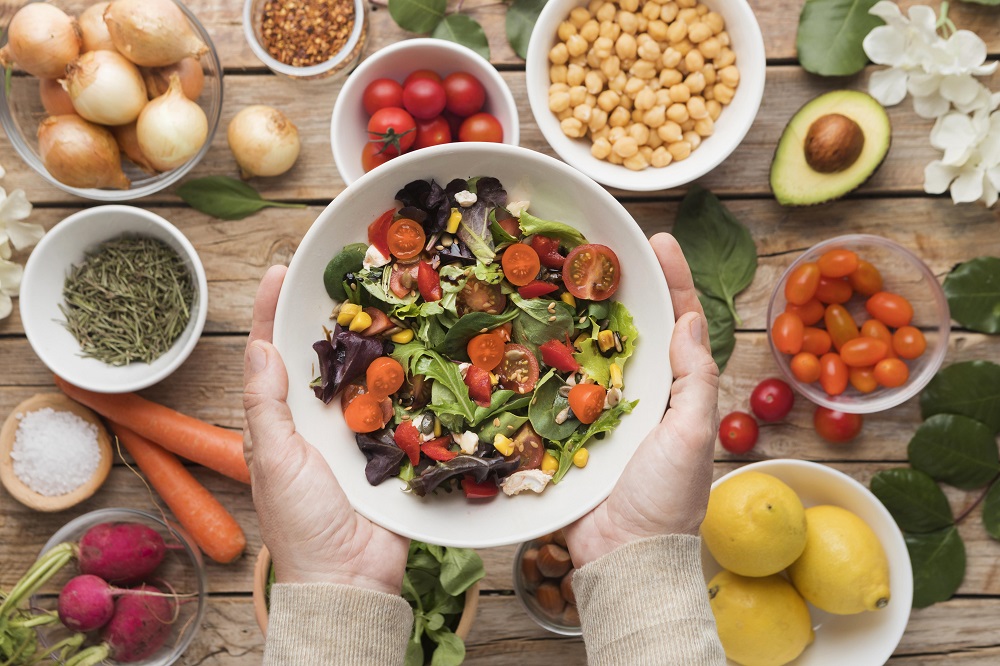Stroke, also known as cerebrovascular accident, is a condition that affects many people around the world.
After a stroke, care, and rehabilitation measures are essential to promote recovery and improve quality of life. One of the most critical aspects of this process is nutrition.
In this article, we will explore how proper nutrition can make a difference in post-stroke rehabilitation and provide useful tips for a healthy diet.
What is a stroke and how does it affect nutrition?
A stroke occurs when the blood supply to the brain is interrupted due to a blood clot or a ruptured blood vessel.
This interruption of blood flow can cause brain damage and affect various body functions.
In addition to the physical and cognitive effects, a stroke can also affect the ability to swallow, chew and control the mouth and tongue muscles.
These changes can have a significant impact on eating and nutrition.
The importance of healthy nutrition in post-stroke rehabilitation
Proper nutrition after stroke plays a vital role in recovery and prevention of complications.
A balanced and nutritious diet can help reduce the risk of heart disease, control blood pressure, maintain a healthy weight, and improve brain function.
Tips for a healthy post-stroke diet
Include foods rich in omega-3 fatty acids: Oily fish, such as salmon and mackerel, are excellent sources of omega-3 fatty acids, which help reduce inflammation and promote cardiovascular and brain health.
Eat fruits and vegetables: These foods are rich in antioxidants, vitamins, and essential minerals. Include a variety of colours for different nutrients and health benefits.
Prioritise whole grain and fibre-rich foods: Whole grains, legumes, and fruits with skin are sources of fibre, which helps regulate intestinal transit and maintain proper blood glucose levels.
Limit consumption of saturated and trans fats: These fats can increase the risk of cardiovascular disease. It is recommended to reduce the intake of fried foods, fast food, and high-fat dairy products.
Control salt and sodium: High salt intake can increase blood pressure. It is important to read labels on processed foods and avoid adding excess salt to foods.
Drink enough water: Adequate hydration is essential for the proper functioning of the body. It is recommended to consume at least 8 glasses of water a day unless your doctor prescribes restrictions due to kidney problems.
The importance of rehabilitation after a stroke
In addition to proper nutrition, rehabilitation is essential in the post-stroke recovery process.
Rehabilitation can help improve mobility, speech, coordination, and other skills affected by stroke.
Benefits of rehabilitation after stroke
Physical recovery: Physical therapy can help strengthen weakened muscles, improve coordination, and restore mobility.
Speech and communication rehabilitation: Speech therapy can help regain communication skills, such as spoken language and comprehension.
Occupational therapy: This form of rehabilitation focuses on developing skills to perform activities of daily living, such as dressing, eating, and bathing independently.
Integrating nutrition and rehabilitation
It is important to emphasise that nutrition and rehabilitation should not be treated as separate entities but as complementary elements in the stroke recovery process.
An interdisciplinary approach involving physicians, dietitians, therapists, and other health professionals can help to design a personalized plan that addresses the individual needs of each patient.
Conclusion
In summary, proper nutrition is essential in the post-stroke rehabilitation process.
Healthy and nutritious food choices can help promote recovery, prevent complications, and improve quality of life.
Along with rehabilitation, balanced nutrition can make all the difference on the road to full recovery.
Please feel free to contact us for personalized guidance on your particular case.
Leave us your data to start your treatment







